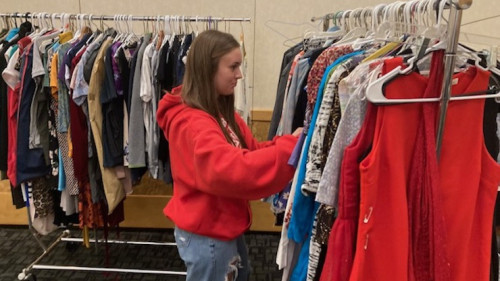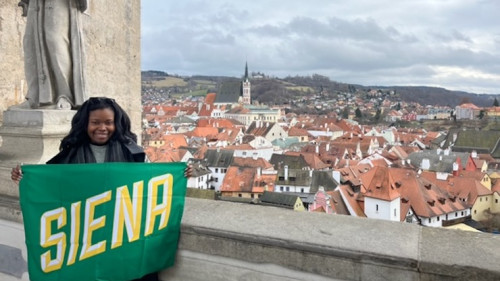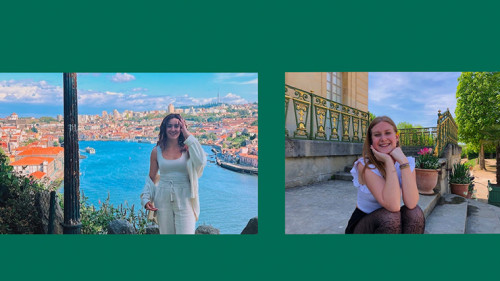
Over the past few semesters, Vera Eccarius-Kelly, Ph.D. noted that more and more of her students were addressing plastic pollution and climate change concerns in her courses.
“The students were repeatedly asking how they could inspire change and create public awareness about intensifying environmental challenges,” said the professor of comparative politics.
To help them achieve those very goals, she developed a new course in Environmental Policy and Action, where students can research and then publicly present innovative solutions that will help transform Siena's campus into a leader in sustainability practices.
“The course is focused on creating some energy around practical concerns that students feel compelled to address, either on campus or more globally,” she said.
The timing for this new team-oriented community-engaged course is especially relevant, as 2020 is the 50th anniversary of Earth Day (April 22). The class of 15 students will form into separate teams to work with campus departments such as the Stack Center and its No Plastics initiative, AVI Food Service, and the Siena College Research Institute, as well as community partners such as Mayan Hands, Beyond Plastics and local physicians and activists.
Liam Antonopoulos ’21 is looking to develop a podcast about eco-friendly college campuses.
“I’m really hoping to inspire more people here at Siena to get educated about what they can do for the environment and how they can be involved in making our campus more sustainable,” he said. “The environment is our future, and we need to safeguard that future in every way we can. The first way to do that is with education, and that’s exactly what we’re getting from Dr. Eccarius-Kelly in this class.”
Michael Averill ’21 and his team will be taking an international focus by studying climate-related migration.
“Climate change plays a major role in migration,” he explained. “Citizens of rural areas in developing countries struggle to support themselves financially through agriculture. Our project will focus on the ways in which environmental degradation leads to conflict over resources and the demise of communities as a result.”
Their group plans to connect with Mayan Hands, a local nonprofit organization that is actively providing solutions to these international issues through fair trade initiatives and female empowerment.
“Migration is at the forefront of the daily news cycle, so it’s critical that students understand the contributing factors that force people to leave their homes, while also developing solutions to combat these issues.”
Medha Palnati ’21 said the class “is one of the most innovative teaching approaches that I have ever had the honor to experience.”
“We are able to practice taking direct action in creating progress and establishing a positive impact in the world around us,” she said. “Our goal is to work with community partners to learn more about climate change and help implement a direct plan to reduce our waste as a campus, to educate one another on the facts surrounding this topic, and come together as a community to protect our planet.”
Her team is studying how microplastics affect the human body and other living organisms.
“Our intention is to spread our findings to others to make the consequences of our waste as they affect health and life.”
Crissy DeMarco '21 will focus on student involvement for her project.
“If only faculty members take initiative to make change, it could seem to administration that students are not interested in sustainability, even though that isn’t the case,” said DeMarco. “I’m hoping that through this class, I’ll be able to work in conjunction with faculty members to recruit students who are passionate about sustainability, and form a team that can make a difference together.”

